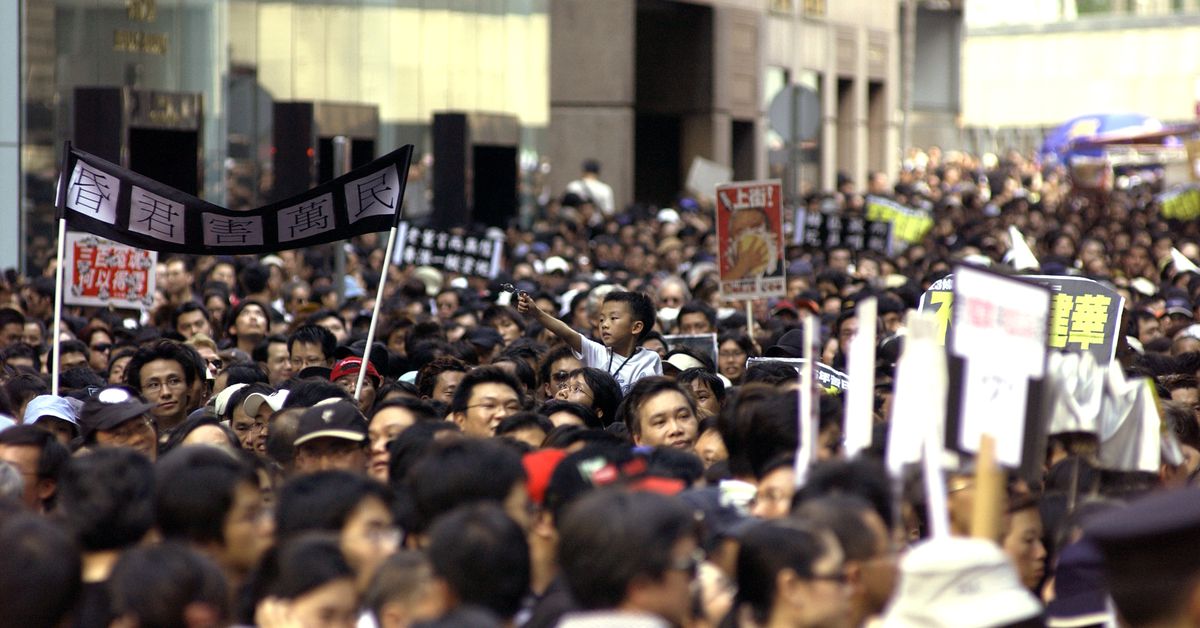21 years ago, half a million Hong Kongers took to the streets to stop Article 23. This month, Beijing finally won.
Last week, the government of Hong Kong published the latest of a series of increasingly draconian national security laws. This one will target espionage, treason, and foreign political interference, and those found guilty of violating some of its tenets could be sentenced to life imprisonment.
This might sound niche or even well-intentioned; doesn’t the US have its own fears about foreign political interference in its elections? But this isn’t really about national security. It is, as Human Rights Watch put it, “Beijing’s latest effort to transform Hong Kong from a free society to an oppressed one where people live in fear.”
That effort has been underway at varying speeds since Hong Kong was returned to Beijing’s control in 1997. It is now all but complete.
Despite complaints from foreign governments, from what remains of Hong Kong civil society, and even from the city’s increasingly beleaguered international business community, Hong Kong’s now opposition-less legislature will almost assuredly fast-track it into law.


